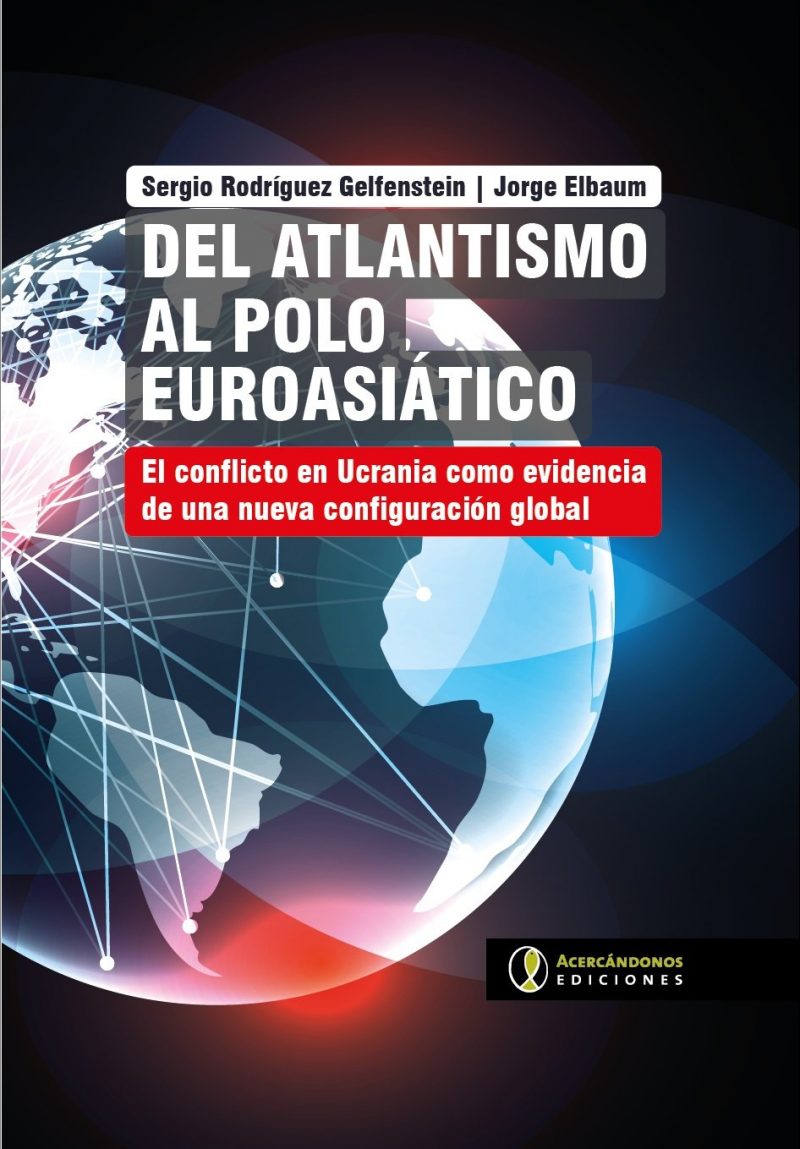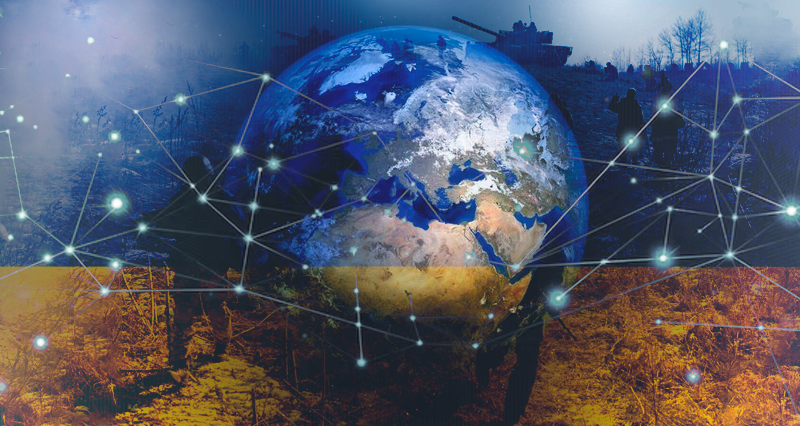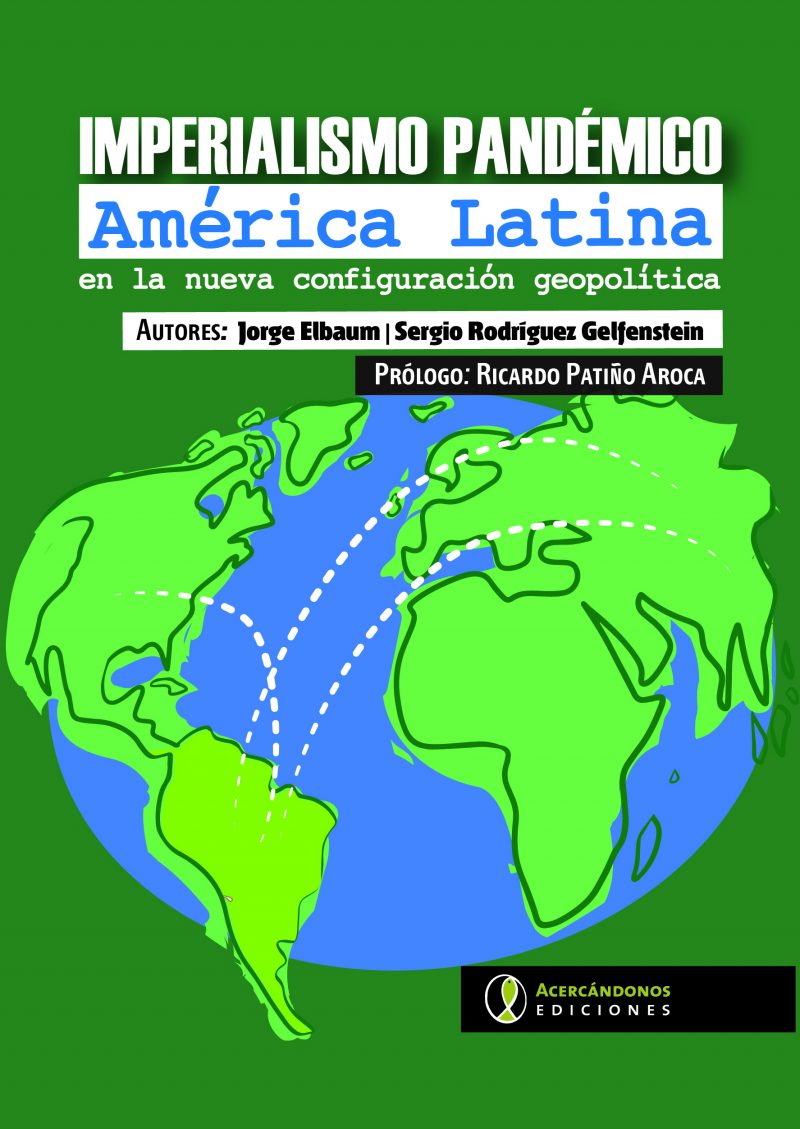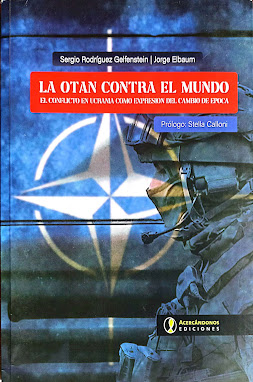On June 2, I arrived in Argentina in order to carry out a promotional tour of my most recent book written once again together with my Argentine colleague and friend Jorge Elbaum. This work, entitled “From Atlanticism to the Eurasian pole: The conflict in Ukraine as an announcement of a new global configuration” comes to be a trilogy together with “Pandemic imperialism: Latin America in the new geopolitical configuration” (2020) and “NATO against the world: The conflict in Ukraine as an expression of the epochal change” (2022), all edited by the publishing house Acercándonos.

In addition to recreating the daily life of the last four years marked by the pandemic and the conflict in Ukraine, in a saga, with these three installments, we have tried to account for the transformations that have been taking place – in this still brief stage of history – as a consequence of these two events that are shaking both the dermis and the epidermis of the international system.
In this latest book, “From Atlanticism to the Eurasian pole…” we are taking note of the profound evolution that is taking place in the world after Russia’s special military operation in Ukraine. The work focuses on following the military course of the conflict and the reformulations that NATO has made to respond to a dynamic that, generated by its ambitious desire for expansion, followed an unwanted course for its interests.
Likewise, it includes the new rhythm that China is giving to the global dynamics in a context of change of territoriality and, as a consequence of the above, the reaction of the West, its support for the expansion of neo-Nazism and fascism and the rejection in search of a necessary multilateral peace.
Finally, the book takes charge of studying the repercussions that these events are having in Latin America and the Caribbean, in the same way that it provides elements of analysis to understand the supports that come to argue that -in the background- as a hallmark of the times we live in, a new global configuration is emerging.
In the prologue, the prominent Argentine international analyst and exceptional scholar of geopolitics Carlos Pereyra-Mele points out:
“The book, with its 174 agile, clear and direct pages, imposes on us the famous phrase of Montesquieu: ‘The culprit of the beginning of a war is generally not the ‘culprit’, but the one who made it ‘inevitable’. And in their text they confirm that THE WORLD OF YALTA AND POTSDAM HAS DIED, dragging with it its key structures such as the UN and Bretton Woods. All this after the disappearance of the USSR, when the triumphalism of the US and its partners led it to affirm, under the auspices of the American neocons and the economic version of neoliberalism, that the 21st century would be “the American Century”. However, only 23 years later, such a grandiose claim is failing on all fronts and is immersed in a very deep crisis, especially due to the growth of “marginal or revisionist countries”, traditionally ignored by the Anglo-Saxon elites. It is evident that both authors, in addition to being inhabitants of the “hospitable” South American territory, -quite the opposite of inhospitable- do not bear the defects of the pseudo-intellectual and political supremacy of Eurocentrism and the Anglo-sphere. This allows them to analyze the world by come from the ” hospitable “land of South America, contrary to the “inhospitable” Western world, with an original thought – that of the authors – and that requires us to rethink everything again, that is, to think differently, giving space and validity to the saying of Vasconcelos about “our cosmic race”, which allows us to differentiate ourselves from that imperial and hegemonic thought”.
Organized by Acercándonos Ediciones, on this occasion we will make presentations in the cities of Buenos Aires, Gualeguaychú, Concordia, Paraná, Rosario, Río Tercero, San Luis, Mendoza, Villa Mercedes and La Plata on a tour that will take us to some of the main cities of the country. The events have been sponsored by national and provincial social, union, political and student organizations.


















Leave a Reply